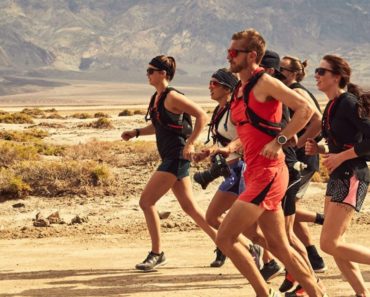—
Spend any time around teens, and you’re likely to hear a common expression, “That’s so gay,” even among gay kids. If you ask them about it, as some researchers have, they often will insist that it is not intended as homophobic language, just a harmless phrase to express frustration or something similar.
Really?
 Let me share a story with you: I married a man who is not Jewish. When I first met my mother-in-law, who is also not Jewish and from a side of town where Jews are scarce, she was showing off a beautiful blouse she had just bought and spoke about the great deal she got on it. “I Jewed the clerk down 20 percent. Isn’t that great?”
Let me share a story with you: I married a man who is not Jewish. When I first met my mother-in-law, who is also not Jewish and from a side of town where Jews are scarce, she was showing off a beautiful blouse she had just bought and spoke about the great deal she got on it. “I Jewed the clerk down 20 percent. Isn’t that great?”
Now, she was a lovely woman, and I’m sure she had no harmful intent with her words, but she obviously had no awareness of their effect on me, a Jewish man—which she knew I was. To her, this was just a common way to express bargaining for a lower price that had nothing to do with Judaism, but to Jewish people it is a stubborn reminder of a harmful stereotype—that Jews are cheap, miserly, money-grubbing outsiders, not quite acceptable to the general population.
Microaggressions
The term “microaggression” was coined in 1970 by Chester M. Pierce to “describe insults and dismissals he regularly witnessed non-black Americans inflict on African Americans” (Wikipedia). A microaggression is a largely unconscious indignity perpetrated through language or behavior that degrades socially marginalized groups. At its core, “Jewing down,” is purely anti-Semitic, but she had no idea.
Minorities get this all the time. They learn to bravely brush it off, try to pretend it is meaningless, that it doesn’t mean they are “other.” But the truth is, words and actions mean something. Such words are a form of harassment and have clear psychological consequences for their victims. Feeling as though we belong in our community is a primal human drive. Absent of a sense of belonging, we suffer damage. Studies reveal that 30 percent of gay adolescents struggle with suicidal thoughts. It’s even worse for trans teens: 41 percent.
It doesn’t matter that kids become acclimated to harmful language. “That’s so gay” is always pejorative, always harmful, and always homophobic. It is especially harmful to kids struggling with their sexuality who have yet to come out. Think about this: For thousands of years, religions have called homosexuality an abomination. People still get murdered if someone thinks they are gay, and not just in other countries. Imagine being that kid who suspects he is LGBT, is feeling shame and in danger for his friendships or his life because he can’t turn to anyone to talk about it … not even God.
Gay Equals Sex
So many unexamined assumptions are embedded in language. When most people hear the term LGBT (lesbian, gay, bisexual or transsexual), for instance, they equate it to having adult sex. But for an LGBT kid, it has almost nothing to do with adult sex. It’s about feeling an attraction to another kid, a desire to become closer, wanting someone to love and cherish just like their heterosexual counterparts.
We ask 6-year-old Brittany if she has a crush on Noah when she puts her arm around him. We ask 7-year-old Noah if he wants to marry his kindergarten teacher when he grows up because he always wants to sit in front and be near her. We don’t ask those same questions to LGBT children when they show affection for their same-sex peers and teachers. We don’t give them any language to name their experiences or describe what they are feeling in the same way we do heterosexual children.
LGBT Children are Invisible
A client once told me that he remembers riding in the car as a kid with his father, and the father pointing out a building they were passing. “That’s where all the faggots go to dance,” he said. His father loved him and had no idea what kind of shame and pain his words caused his son who was struggling with his sexuality. Another client’s mother once caught him looking at gay porn, and said, horrified, “You’re not gay, are you?” Later when these parents learned their children were gay they apologized to them for saying these things, but the damage was already done. When they said to my clients that they didn’t mean it, my clients said, “Yes, of course you meant it. I heard you say it without knowing I was gay. I forgive you, but it did shame me.”
I hear stories like these in my office every day. LGBT children and teenagers are little spies looking around to see if people are safe or dangerous or if the situation or environment they are in is safe or dangerous. Hearing kids saying, “that’s so gay” every day makes the people and everything else around them questionable: Are things safe or dangerous?
What Can Be Done?
What, then, can be done about making kids (and the rest of us) more aware of the harm using such phrases as “That’s so gay?” A good starting place is in our schools. In many of them today, teachers make it clear that using the “N-word,” or words like “retarded” is completely unacceptable.
Our teachers and schools already are burdened with trying to right so many of our society’s wrongs, but we have little choice but to start at the place where kids spend much of their time learning about living together in society. It should be the same at home, but the truth is many parents are unaware of how damaging their use of language can be.
But parents who are enough aware of language’s substrata can help by helping their kids’ schools understand the value of practicing the same kind of zero tolerance for homophobic language that they do for racist or anti-Semitic or bullying language.
The best thing I have seen is the campaign “ThinkB4YouSpeak” by GLSEN (Gay, Lesbian School Educator Network). From their website: “LGBT teens hear anti-LGBT remarks throughout the school day, creating an atmosphere where they feel disrespected, unwanted and unsafe.”
Anti-LGBT remarks such as “that’s so gay” are often unintentional and a common part of teens’ vernacular. Most do not recognize the consequences, but the casual use of this language often carries over into more overt harassment.
This campaign aims to raise awareness about the prevalence and consequences of anti-LGBT bias and behavior in America’s schools. Ultimately, the goal is to reduce and prevent the use of anti-LGBT language in an effort to create a more positive environment for LGBT teens. The campaign also aims to reach adults, including school personnel and parents; their support of this message is crucial to the success of efforts to change behavior.”
Doing nothing is part of the problem. If we are truly emerging as a more tolerant, accepting, and less violent society—which many think we are—then we need to call foul on language that hides deep-seated prejudice and fear of “others.”
—
This post was originally published on Psychology Today and is republished here with the author’s permission.
—
If you believe in the work we are doing here at The Good Men Project, please join like-minded individuals in The Good Men Project Premium Community.
◊♦◊
◊♦◊
Get the best stories from The Good Men Project delivered straight to your inbox, here.
◊♦◊
◊♦◊
Sign up for our Writing Prompts email to receive writing inspiration in your inbox twice per week.
♦◊♦
We have pioneered the largest worldwide conversation about what it means to be a good man in the 21st century. Your support of our work is inspiring and invaluable.
—
Photo credit: Getty Images
The post ‘That’s So Gay’ is Just so Wrong appeared first on The Good Men Project.
(via The Good Men Project)








